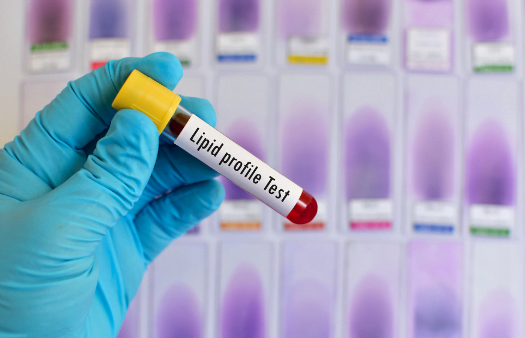Lipid Panel Analysis in Preclinical Veterinary Trials
The lipid panel analysis in preclinical veterinary trials is a critical component of understanding and optimizing the health and wellness of animals used in research. This test evaluates key biomarkers that reflect cardiovascular health, metabolic balance, and overall well-being, which are essential for ensuring the reliability and ethical considerations of preclinical studies.
In preclinical veterinary trials, particularly those involving cardiovascular research, lipid profile analysis is crucial because it helps identify potential risks associated with new treatments or drug formulations. By assessing levels of cholesterol (HDL, LDL, total), triglycerides, apolipoprotein A1 and B, and other indicators, researchers can better predict the efficacy and safety of investigational therapies.
The process begins with the collection of blood samples from experimental animals under strict protocols to ensure accuracy. The samples are then processed using advanced analytical instruments that adhere to international standards such as ISO 15189 for proficiency in quality management systems. These instruments provide precise measurements, which are essential for reliable data interpretation.
Understanding the lipid profile is not only important for efficacy but also for ensuring ethical standards in research. By monitoring these parameters closely, researchers can adjust protocols to minimize adverse effects and improve animal welfare. This approach aligns with regulatory guidelines like those from the U.S. Department of Agriculture (USDA) and the European Medicines Agency (EMA).
The lipid panel analysis is also pivotal for comparative studies where treatments are evaluated against existing standards or other experimental drugs. By establishing a baseline through comprehensive lipid profiling, researchers can more accurately assess changes in response to interventions. This detailed approach ensures that any observed effects are due to the treatment rather than natural variability.
Moreover, lipid panel analysis plays a vital role in the development of personalized medicine for veterinary use. It allows for the identification of individual differences in how animals respond to various treatments, which can guide more targeted therapeutic approaches. This not only enhances the effectiveness of treatments but also reduces unnecessary stress and risk on the animals involved.
The robust data generated from lipid panel analysis contributes significantly to the translational medicine process, bridging preclinical research with clinical applications. By providing insights into how different factors influence cardiovascular health in veterinary populations, researchers can better design studies that translate into more effective treatments for human patients as well.
- Ensures ethical treatment of animals
- Provides reliable data for efficacy and safety evaluations
- Aids in the development of personalized medicine approaches
- Facilitates translational research between preclinical and clinical settings
Why It Matters
The importance of lipid panel analysis in preclinical veterinary trials cannot be overstated. Cardiovascular diseases are a leading cause of morbidity and mortality among animals used in research. By conducting thorough lipid profiling, researchers can identify early signs of potential health issues, thereby preventing complications that could arise during the trial.
Understanding these biomarkers allows for more accurate assessment of the impact of experimental treatments on cardiovascular function. This information is crucial not only for the immediate success of the study but also for long-term implications in veterinary medicine and human healthcare. The insights gained from lipid panel analysis can lead to the development of safer, more effective therapies.
Moreover, this test supports regulatory compliance by ensuring that all aspects of the trial meet established standards. This not only protects the integrity of the research but also enhances public trust in scientific methodologies. By adhering strictly to guidelines such as ISO 15189 and USDA regulations, laboratories can demonstrate their commitment to quality and ethical conduct.
The data collected from lipid panel analysis is invaluable for comparative studies where treatments are evaluated against existing standards or other experimental drugs. This detailed approach ensures that any observed effects are due to the treatment rather than natural variability, thus providing more robust evidence of efficacy and safety.
Why Choose This Test
- Precision measurements using advanced analytical instruments
- Compliance with international standards for quality management systems (ISO 15189)
- Supports ethical treatment of animals in research
- Provides reliable data for efficacy and safety evaluations
- Aids in the development of personalized medicine approaches
- Facilitates translational research between preclinical and clinical settings
- Contributes to comparative studies enhancing the reliability of trial outcomes
Competitive Advantage and Market Impact
The ability to conduct comprehensive lipid panel analysis in preclinical veterinary trials offers significant competitive advantages. It sets laboratories apart by providing unparalleled accuracy and precision, which are critical for maintaining high standards in research. This capability not only enhances the reliability of trial results but also increases confidence among researchers and regulatory bodies.
By adhering to stringent international standards and ethical guidelines, these labs contribute positively to public perception and trust in scientific methodologies. The data generated from such analyses can be pivotal in securing funding for further research or development projects. Moreover, it opens doors to collaborative opportunities with leading pharmaceutical companies and academic institutions, fostering innovation and advancement.
The market impact is substantial as well. With increasing focus on animal welfare and ethical considerations in preclinical trials, laboratories that excel in lipid panel analysis are better positioned to meet the demand for high-quality research services. This expertise can attract a broader client base, including those interested in translational medicine and personalized veterinary care.
Furthermore, by contributing valuable insights into cardiovascular health and metabolic balance, these labs play a crucial role in advancing scientific knowledge. Their work supports the development of safer and more effective treatments that benefit both animals and humans, thereby making significant contributions to public health.





